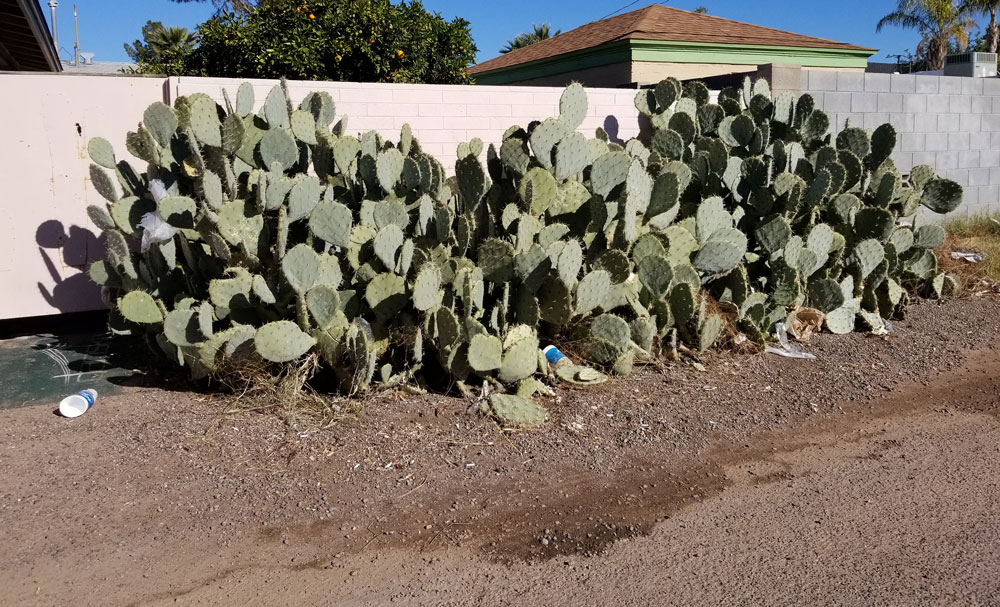
Scientists have found cyanobacteria living deep under the sea, in the seabed. This isn’t just slightly underground…this is 2,000 feet underground. They are living, without sunlight, within fissures of rocks. They aren’t just traces of life, like what scientists have found in ancient ice cores. These are living bacteria, surviving NOW.
Bermuda Grass

Every day, I pull bermuda grass from my garden. Trying to keep the roots from taking hold of everything, I grab from the base of the roots and pull up as much as I can. But they always come back. There is no getting rid of it without getting rid of everything.
Cactus

A prickly pear cactus grows in an alleyway, likely thrown-away clippings from one that got too “out of control” in the front yard. They lay on the ground, shoot roots from the side of the paddle, take root in the tough, rocky and clay-like soil, and grow. A pad hits the chain link fence and forms around the wire.
People
We get fired, get sick, get our hearts broken, our houses burn down. We lose our entire family, children are killed in a school shooting, thousands of people die as the towers collapse, we become paralyzed, we lose our minds, we live in pain. But then we wake up, eat food, try something else and keep going.
Cyanobacteria just won’t quit
Cyanobacteria are one of the oldest life forms on the planet and exist just about everywhere. Literally, everywhere. Just when and where we think nothing can exist, they are there. There is never nothing. Cyanobacteria can survive and thrive SO well that it sometimes grows and proliferates to the point that it harms us and kills us. It has no mission of destruction. It’s directive is to live and keep living. It finds the food it needs where it can and when it can’t, it basically creates it for itself.
Life never stops.
Why don’t we quit?
Despite every obstacle and deterrent and tragedy, we just keep going. If we don’t, we die, which is a tragically basic ending to an existence that is so busy and complex. We survive and thrive by learning to control our environment to keep us alive. Farming replaced gatherin. Raising livestock replaced hunting. We stopped roaming and built homes. When the homes weren’t resilient enough, we sought out better materials. We’ve found our way into living in every fissure and crevice of the globe and now we are even eyeing up space.
Our lives are so insanely complex now (of our own construction) that many of us can barely keep up. So we draw back. We see how stress is starting to kill the systems we’ve developed to be so resilient. Then, we start gardening, baking, spending more time with our kids, family and friends. We meditate, do yoga, eat well, rest, get inspired, think. We are trying another fissure.
Cyanobacteria and us

Viable cyanobacterial cells (red fluorescent signals) attached to rock fragments. Credit: PNAS
We’re not so different: this cyanobacteria and us. Maybe we want and we control and we consider the purpose but we still don’t stop until all the possibilities are exhausted. How often does it feel like you’re living in a crevice and bound by too many restrictions but yet, you still find a way? You still move forward and find tomorrow until the body just can’t anymore. We can be bullied, ordered, controlled and contained, but each day moves forward, even under tragedy, depression, frustration and anger. We still move forward and suffer the nervousness of perpetual change.